News
Mega brands balance sustainability goals with ‘greenwashing’ accusations
15 Nov 2023
Global companies like Nestlé, Unilever, Coca-Cola and Danone all have significantly revised and improved their sustainability goals in the last decade – but how much is meaningful change and how much is greenwashing?
As the climate crisis becomes a bigger part of everyday life, it is impacting consumer purchasing decisions and raising expectations for brands to make an effort for more sustainable choices.
Major brands have been making sustainable investments, but much of this has come as a result of public pressure. These same consumer packaged goods (CPG) companies are regularly named as the worst polluters of plastic in the world, with Coca-Cola topping the United Nations’ list for the last five years in a row.
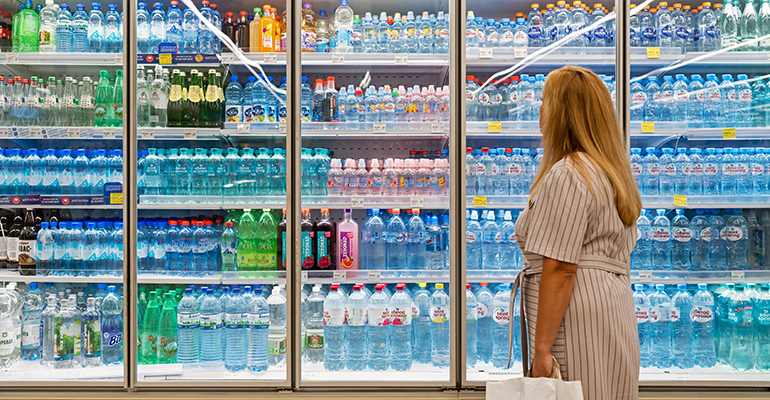
Beverage brands especially have been urged to find a solution for the overwhelming amount of plastic used for bottles of water, soda, and juice. Reusing plastic through recycling can help, but the more sustainable option is reducing plastic overall with alternative packaging materials. And many environmental advocates say that these top offending companies still are not doing enough.
Water brands accused of greenwashing product labels
Consumer advocacy groups including the European Consumer Organisation (BEUC) and ClientEarth filed a legal complaint in early November with EU authorities accusing major water bottle producers of “greenwashing.”
The groups said brands like Coca-Cola, Danone and Nestlé use “misleading commercial claims about the recyclability of their products” which do not comply with the EU rules on unfair commercial practices.
Claims used by water bottle brands like “100% recyclable” and “100% recycled” are the most concerning, according to the consumer groups, because they are ambiguous and can incorrectly imply that the packaging is made entirely from recycled materials.
The use of “green” imagery like closed loops, green logos and nature images is also a problem, the groups said, because they “prompt the false idea of environmental neutrality, endless plastic circularity and may even give the impression that the bottles would have a positive impact on the environment.”
“The reality is single use plastic is neither circular nor sustainable. Recycling can never catch up with the sheer volume of plastic produced on our planet,” said Rosa Pritchard, plastics lawyer at ClientEarth.
“Companies are in a unique position to change how we consume but currently these claims – which we consider to be misleading – are making it hard for consumers to make good environmental choices.”
Nestlé and Unilever tout strides in plastic waste
The Ellen MacArthur Foundation recently published a report on the progress of the 2018 Global Commitment regarding plastic waste and a circular economy. The companies that signed this initiative, including many major CPG brands, set various goals to decrease their impact on the environment by 2025.
Nestlé revealed it has reduced its amount of virgin plastic packaging by 10.5% in the last five years, and is on track to get to one-third less virgin plastic by the end of 2025.
The company also said that it cut the weight of its total product packaging by 200,000 tonnes last year, which resulted in a reduction of its greenhouse gas emissions by 280,000 tonnes.
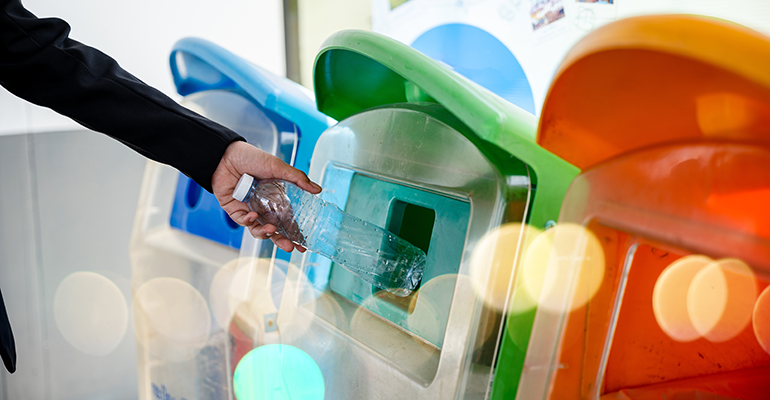 © AdobeStock/sorapop
© AdobeStock/sorapop
"We are continually pursuing better packaging solutions where we can have a direct impact. With our in-house packaging experts and scientists, we are developing the next generation of packaging materials as well as redesigning packaging for the circular economy,” said Antonia Wanner, head of ESG strategy and deployment at Nestlé.
“In addition, we promote better infrastructure systems for waste management, advocate for harmonised regulation, and encourage behavioural change."
Some of those packaging solutions include lighter weight plastic used in the company’s Nescafé Dolce Gusto capsules that launched last year. Nestlé also is in the process of testing several different reuse and refill solutions, like stainless-steel containers for its Nesquik brand.
Unilever signed the Global Commitment initiative as well, and said that it has decreased its use of virgin plastic by 13% versus its 2019 baseline. The proportion of recycled plastic in its packaging increased from 1% to 21% in four years.
The company is also exploring packaging innovations using less or no plastic, such as laundry capsules in plastic-free cardboard boxes for its brands Persil, Skip and OMO.
“We’re stepping up our investment in material science and prioritising initiatives that will reduce the amount of plastic we use,” said Pablo Costa, the global head of packaging at Unilever.
“More than ever, we need policy to drive systemic change and ensure that all businesses play by the same rules. That includes the remaining 80% of plastic packaging volumes not currently covered by the Global Commitment. After all, industry commitments and voluntary initiatives cannot solve the problem alone.”
Related news

Oat Barista: Innovation for game-changing beverages
20 Nov 2025
Oat Barista is a clean label, sustainable, and innovative drink base specifically designed to create the perfect foam in one single ingredient.
Read more
How younger consumers are redefining ingredient choices and rejecting brand loyalty
18 Nov 2025
Gen Z and millennial consumers’ preferences for transparency, functionality, and purpose are “redefining the very nature of consumption itself”, says SPINS.
Read more
Hybrid formats and flexible positioning to disrupt category norms in 2026
17 Nov 2025
Trend forecasters expect food and drink to move more fluidly across occasions, functions, and formats as consumers seek versatility, novelty, and convenience.
Read more
Danone highlights digestive health as potential ‘tipping point’ for food industry
13 Nov 2025
Danone is betting on a food industry “tipping point” that will bloat the market for healthy products, particularly those related to gut health.
Read more
New UPF standard hoped to offer consumers ‘coherence and clarity’
10 Nov 2025
Ingredients companies are being urged to enter “a new era of partnership and innovation” following the launch of the industry’s first non-UPF verification scheme.
Read more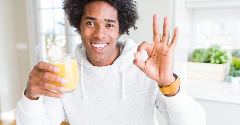
Faravelli at Fi Europe: Showcasing FARA® functional solutions for food and nutra
28 Oct 2025
At Fi Europe 2025 in Paris (stand 72M39), Faravelli showcases FARA® Customized Functional Solutions and a wide ingredient portfolio for food and nutra – delivering quality, innovation, and expertise.
Read more
Agrigum Redefined FIBER
27 Oct 2025
Agrigum has transformed gum acacia into a natural, science-backed fibre that supports gut health, sustainability, and innovation across global food and nutrition applications.
Read more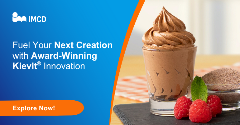
Expanding boundaries in food & beverage innovation
23 Oct 2025
IMCD and FrieslandCampina Professional expand partnership to deliver Kievit® across EMEA, enabling brands to enhance quality and accelerate time-to-market for tomorrow’s food & beverage creations.
Read more
Amazon Grocery launch aims to balance quality with affordability
22 Oct 2025
Global e-commerce giant Amazon has introduced a new private-label food brand, combining existing Amazon Fresh and Happy Belly products with new everyday items.
Read more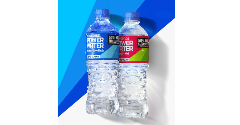
Powerade enters hydration space with launch of Power Water
21 Oct 2025
Coca-Cola’s Powerade brand has launched a zero-sugar, electrolyte-enhanced functional water, marking the brand's entry into the hydration space.
Read more